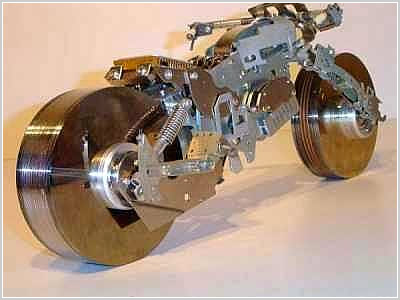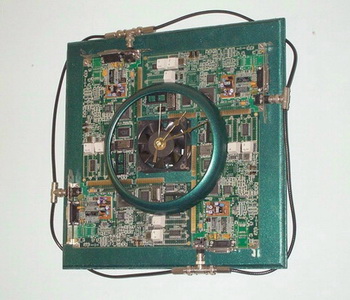The noun computer architecture or digital computer organization is a blueprint, a description of the requirements and basic design for the various parts of a computer. It is usually most concerned with how the central processing unit (CPU) acts and how it accesses computer memory. Some currently (2011) fashionable computer architectures include cluster computing and Non-Uniform Memory Access.
Once the instruction set and microarchitecture are described, a practical machine needs to be designed. This design process is called the implementation. Implementation is usually not considered architectural definition, but rather hardware design engineering.
The term "architecture" in computer literature can be traced to the work of Lyle R. Johnson, Muhammad Usman Khan and Frederick P. Brooks, Jr., members in 1959 of the Machine Organization department in IBM's main research center.
Johnson had the opportunity to write a proprietary research communication about Stretch, an IBM-developed supercomputer for Los Alamos Scientific Laboratory. In attempting to characterize his chosen level of detail for discussing the luxuriously embellished computer, he noted that his description of formats, instruction types, hardware parameters, and speed enhancements was at the level of "system architecture" – a term that seemed more useful than "machine organization."
Subsequently, Brooks, one of the Stretch designers, started Chapter 2 of a book (Planning a Computer System: Project Stretch, ed. W. Buchholz, 1962) by writing, "Computer architecture, like other architecture, is the art of determining the needs of the user of a structure and then designing to meet those needs as effectively as possible within economic and technological constraints."
Brooks went on to play a major role in the development of the IBM System/360 (now called the IBM zSeries) line of computers, where "architecture" gained currency as a noun with the definition as "what the user needs to know". Later the computer world would employ the term in many less-explicit ways.
Some practitioners of computer architecture at companies such as Intel and AMD use more fine distinctions: The coordination of abstract levels of a processor under changing forces, involving design, measurement and evaluation. It also includes the overall fundamental working principle of the internal logical structure of a computer system. It can also be defined as the design of the task-performing part of computers, i.e. how various gates and transistors are interconnected and are caused to function per the instructions given by an assembly language programmer.
Once the instruction set and microarchitecture are described, a practical machine needs to be designed. This design process is called the implementation. Implementation is usually not considered architectural definition, but rather hardware design engineering.
The term "architecture" in computer literature can be traced to the work of Lyle R. Johnson, Muhammad Usman Khan and Frederick P. Brooks, Jr., members in 1959 of the Machine Organization department in IBM's main research center.
 cycle from computer parts |  Geeky computer part art |  Computer Parts Art |  Computer Parts Art at |  Computer Parts Art |
 Computer Parts Art 02 |  Computer Part Art - Net Time |  Creativity art from Computer |  Object Art from Old Computer |  Recycled Computer Parts Art |
Brooks went on to play a major role in the development of the IBM System/360 (now called the IBM zSeries) line of computers, where "architecture" gained currency as a noun with the definition as "what the user needs to know". Later the computer world would employ the term in many less-explicit ways.
 Art From Computer Parts |  Computer part trinkets |  computer parts |  Computer parts art |  computer parts that look |
 these parts into some |  from old computer parts. |  Funny Computer Things. |  Computer Parts Art |  Creativity art from Computer |

No comments:
Post a Comment